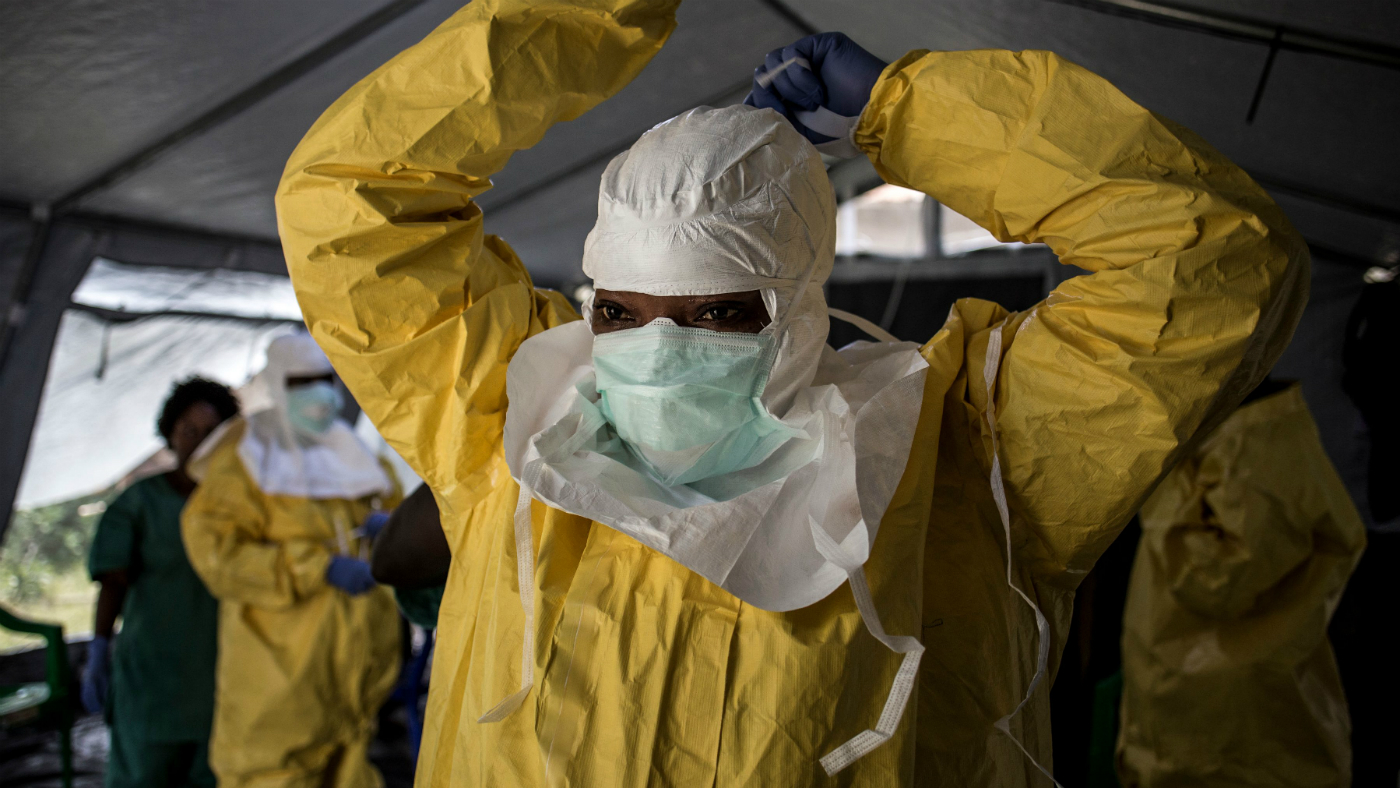DRC suffering worst Ebola outbreak in history
Fight against the deadly disease complicated by ongoing conflict and vaccine fears

A free daily email with the biggest news stories of the day – and the best features from TheWeek.com
You are now subscribed
Your newsletter sign-up was successful
The current Ebola outbreak in the Democratic Republic of Congo (DRC) is the most severe in the country’s history, according to the government.
Roughly 200 people have died and more than 300 have been infected by the highly contagious virus, the health ministry announced on Friday.
This is the 10th Ebola outbreak the war-ravaged country has suffered in the past four decades.
The Week
Escape your echo chamber. Get the facts behind the news, plus analysis from multiple perspectives.

Sign up for The Week's Free Newsletters
From our morning news briefing to a weekly Good News Newsletter, get the best of The Week delivered directly to your inbox.
From our morning news briefing to a weekly Good News Newsletter, get the best of The Week delivered directly to your inbox.
“No other epidemic in the world has been as complex as the one we are currently experiencing,” said Health Minister Oly Ilunga.
He added: “In view of these figures, my thoughts and my prayers go to the hundreds of families grieving, to the hundreds of orphans and the families which have been wiped out.”
Efforts to contain the outbreak, which is centred in the conflict-hit North Kivu region, have been hampered by militia attacks on medical teams.
North Kivu is “awash with violence and insecurity, particularly in the mineral-rich borderlands where militia activity has surged in the past year, all of which complicates the response to the outbreak,” ABC News reports.
A free daily email with the biggest news stories of the day – and the best features from TheWeek.com
There is no known cure for Ebola, which kills between 25% and 90% of its victims.
A vaccination programme has so far inoculated about 25,000 people in the DRC, but health professionals warn that suspicion of the new vaccine is widespread.
“Lots of people reject the vaccine and they talk a lot about it,” Dr Maneno Muhindangabo Henry told Sky News. “They say if you take it you will become infertile, it will kill you, it has bad effects.”
The head of World Health Organisation, Dr Tedros Adhanom Ghebreyesus, said health workers have never had to deal with such a complicated epidemic.
“The situation with this outbreak is very different from other outbreaks,” he said. “Even the West Africa outbreak because there is a serious security problem here, an active army conflict and that complicates the situation.”
The UN agency has previously admitted that it was “too slow” to respond to the 2014-16 West African Ebola outbreak that killed more than 11,000 people across six countries.
-
 The environmental cost of GLP-1s
The environmental cost of GLP-1sThe explainer Producing the drugs is a dirty process
-
 Greenland’s capital becomes ground zero for the country’s diplomatic straits
Greenland’s capital becomes ground zero for the country’s diplomatic straitsIN THE SPOTLIGHT A flurry of new consular activity in Nuuk shows how important Greenland has become to Europeans’ anxiety about American imperialism
-
 ‘This is something that happens all too often’
‘This is something that happens all too often’Instant Opinion Opinion, comment and editorials of the day
-
 Epstein files topple law CEO, roil UK government
Epstein files topple law CEO, roil UK governmentSpeed Read Peter Mandelson, Britain’s former ambassador to the US, is caught up in the scandal
-
 Iran and US prepare to meet after skirmishes
Iran and US prepare to meet after skirmishesSpeed Read The incident comes amid heightened tensions in the Middle East
-
 Israel retrieves final hostage’s body from Gaza
Israel retrieves final hostage’s body from GazaSpeed Read The 24-year-old police officer was killed during the initial Hamas attack
-
 China’s Xi targets top general in growing purge
China’s Xi targets top general in growing purgeSpeed Read Zhang Youxia is being investigated over ‘grave violations’ of the law
-
 Panama and Canada are negotiating over a crucial copper mine
Panama and Canada are negotiating over a crucial copper mineIn the Spotlight Panama is set to make a final decision on the mine this summer
-
 Why Greenland’s natural resources are nearly impossible to mine
Why Greenland’s natural resources are nearly impossible to mineThe Explainer The country’s natural landscape makes the task extremely difficult
-
 Iran cuts internet as protests escalate
Iran cuts internet as protests escalateSpeed Reada Government buildings across the country have been set on fire
-
 US nabs ‘shadow’ tanker claimed by Russia
US nabs ‘shadow’ tanker claimed by RussiaSpeed Read The ship was one of two vessels seized by the US military